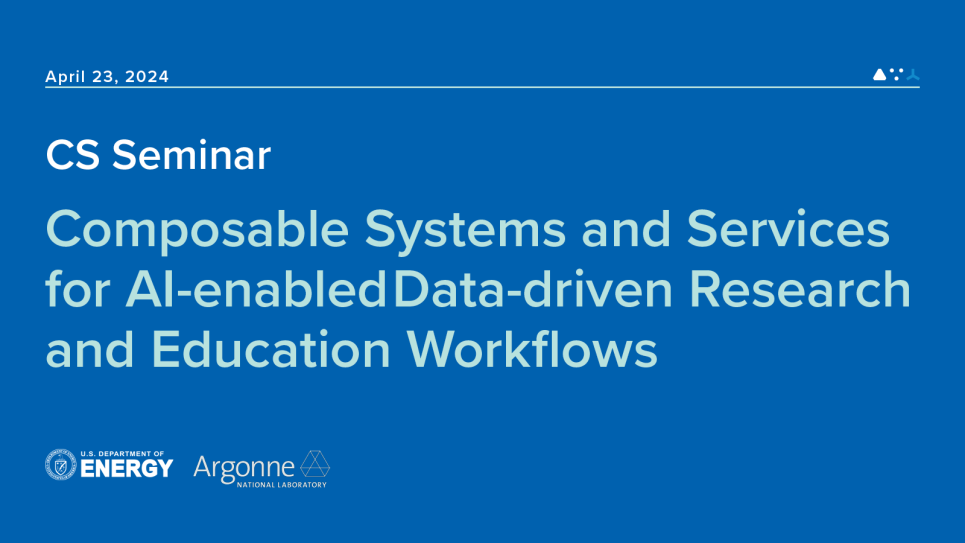
Composable Systems and Services for AI-enabled Data-driven Research and Education Workflows
Scientific computing is increasingly merging with machine learning and artificial intelligence, demanding specialized frameworks for managing distributed data and computing. This trend has led to the rise of new systems that facilitate dynamic container orchestration and integration across varied resource pools, coined composable systems. The presentation will detail a strategy and lessons learned for using composable systems for workflows at the intersection of computing, AI, and sensor data, focusing on a case study that combines Expanse, a supercomputer, with Nautilus, a Kubernetes-based GPU cluster, and Sage, an edge AI infrastructure. By showcasing lessons learned from applications in hazard management and the Internet of Things, the talk will illustrate the importance of integrated workflows to unite dynamic, data-driven science with composable infrastructures, underscoring their impact on scientific discovery. We will also overview the National Data Platform, a federated and extensible data and service ecosystem to promote collaboration, innovation, and equitable use of data on top of existing composable cyberinfrastructure capabilities.
Bio:
Dr. İlkay Altıntaş, a research scientist at the University of California San Diego, is the Chief Data Science Officer of the San Diego Supercomputer Center as well as a Founding Fellow of the Halıcıoğlu Data Science Institute. She is the Founding Director of the Workflows for Data Science (WorDS) Center of Excellence and the WIFIRE Lab. The WoRDS Center specializes in the development of methods, cyberinfrastructure, and workflows for computational data science and its translation to practical applications. The WIFIRE Lab is focused on artificial intelligence methods for an all-hazards knowledge cyberinfrastructure, becoming a management layer from the data collection to modeling efforts, and has achieved significant success in helping to manage wildfires. Since joining SDSC in 2001, she has been a principal investigator and a technical leader in a wide range of cross-disciplinary projects. With a specialty in scientific workflows, she leads collaborative teams to deliver impactful results through making computational data science work more reusable, programmable, scalable, and reproducible. Her work has been applied to many scientific and societal domains including bioinformatics, geoinformatics, high-energy physics, multi-scale biomedical science, smart cities, and smart manufacturing. She is also a popular MOOC instructor in the field of “big” data science and reached out to more than a million learners across any populated continent. Among the awards she has received are the 2015 IEEE TCSC Award for Excellence in Scalable Computing for Early Career Researchers and the 2017 ACM SIGHPC Emerging Woman Leader in Technical Computing Award. Ilkay serves on the elected Board of Governors for the IEEE Computer Society, and was appointed by California Governor Newsom to the Wildfire Technology Research and Development Review Advisory Board. She also a founding board member of nonprofit organizations Data Science Alliance, and Climate and Wildfire Institute. Ilkay received a Ph.D. degree from the University of Amsterdam in the Netherlands.
See upcoming and previous presentations at CS Seminar Series.